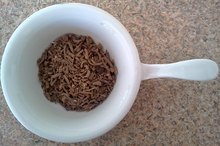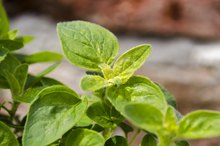What does fact checked mean?
At Healthfully, we strive to deliver objective content that is accurate and up-to-date. Our team periodically reviews articles in order to ensure content quality. The sources cited below consist of evidence from peer-reviewed journals, prominent medical organizations, academic associations, and government data.
- U.S. National Library of Medicine: Dandelion
- National Center for Complementary and Alternative Medicine: Listings for Dandelion & Milk Thistle
The information contained on this site is for informational purposes only, and should not be used as a substitute for the advice of a professional health care provider. Please check with the appropriate physician regarding health questions and concerns. Although we strive to deliver accurate and up-to-date information, no guarantee to that effect is made.
Milk Thistle & Dandelion on an Empty Stomach
Dandelion and milk thistle plants are members of the same plant family, Compositae 3. They originated in Europe and now grow wild across North America, according to Medicinal Herb Info. In spite of their reputation as unwanted weeds, they're both valuable medicinal herbs. Before beginning to take any medicinal herbs or supplements, consult your health care provider for instructions.
If you are experiencing serious medical symptoms, seek emergency treatment immediately.
Milk Thistle & Dandelion
Dandelion and milk thistle are traditionally used to treat various liver conditions, but each has a number of other medicinal uses 2. However, the National Center for Complementary & Alternative Medicine, or NCCAM, website says both herbs can upset the stomach when taken 3. This may be avoided if the supplements are taken with food.
Research
Dandelion Root Vs. Dandelion Leaf
Learn More
The NCCAM has funded a number of clinical studies on the use of milk thistle to treat various conditions, and the results seem promising. It suggests that more research be done before the herb can be recommended. And even though dandelion has a time-honored tradition of medicinal use, the NCCAM site claims there is no clinical proof that it works in treating medical conditions.
Possible Side Effects
The MSKCC website reports that dandelion and milk thistle could cause an upset stomach or mild diarrhea when taken. Potentially, these could be avoided by taking the supplements with meals. Other possible side effects are described on the U.S. National Library of Medicine, or USNLM, website as lowering blood sugar levels and potential excess bleeding.
Potential Interactions
Is Valerian Root Dangerous to the Liver?
Learn More
Dandelion may have harmful interactions with some other herbs and medications, says the USNLM site. If you have questions about whether dandelion or milk thistle will interact harmfully with medications or supplements you take, discuss it with a pharmacist or health care provider.
Forms Used
The site also says that milk thistle is available in capsules, standardized dried herb, liquid extract and tincture. Both can also be made into teas.
Considerations
According to the NCCAM website, people with known allergies to other members of the plant family Compositae such as:
- chamomile
- chrysanthemums
- yarrow
- feverfew
- ragweed
- marigold or daisy should not use dandelion or milk thistle
They could also cause an allergic reaction. Allergic reactions can occur even if a substance has been used before with no reaction. Watch for signs of swelling of the lips, tongue, throat, face or a rash. If any of these occur, stop using the herbs and contact your health care provider.
- According to the NCCAM website, people with known allergies to other members of the plant family Compositae such as: * chamomile
* chrysanthemums
* yarrow
* feverfew
* ragweed
* marigold or daisy should not use dandelion or milk thistle They could also cause an allergic reaction.
Related Articles
References
- Memorial Sloan-Kettering Cancer Center: Listings for Dandelion & Milk Thistle
- Medicinal Herb Info: Listings for Dandelion & Milk Thistle
- National Center for Complementary and Alternative Medicine: Listings for Dandelion & Milk Thistle
- National Center for Complementary and Integrative Health. Milk Thistle. Updated September 2016.
- Abenavoli L, Capasso R, Milic N, Capasso F. Milk thistle in liver diseases: past, present, future. Phytother Res. 2010;24(10):1423-32. doi:10.1002/ptr.3207
- Salmi HA, Sarna S. Effect of silymarin on chemical, functional, and morphological alterations of the liver. A double-blind controlled study. Scand J Gastroenterol. 1982;17(4):517-21. doi:10.3109/00365528209182242
- Seeff LB, Curto TM, Szabo G, et al. Herbal product use by persons enrolled in the hepatitis C Antiviral Long-Term Treatment Against Cirrhosis (HALT-C) Trial. Hepatology. 2008;47(2):605-12. doi:10.1002/hep.22044
- Fried MW, Navarro VJ, Afdhal N, et al. Effect of silymarin (milk thistle) on liver disease in patients with chronic hepatitis C unsuccessfully treated with interferon therapy: a randomized controlled trial. JAMA. 2012;308(3):274-82. doi:10.1001/jama.2012.8265
- Ebrahimpour koujan S, Gargari BP, Mobasseri M, Valizadeh H, Asghari-jafarabadi M. Effects of Silybum marianum (L.) Gaertn. (silymarin) extract supplementation on antioxidant status and hs-CRP in patients with type 2 diabetes mellitus: a randomized, triple-blind, placebo-controlled clinical trial. Phytomedicine. 2015;22(2):290-6. doi:10.1016/j.phymed.2014.12.010
- Kazazis CE, Evangelopoulos AA, Kollas A, Vallianou NG. The therapeutic potential of milk thistle in diabetes. Rev Diabet Stud. 2014;11(2):167-74. doi:10.1900/RDS.2014.11.167
- Ebrahimpour, K.; Gargari, B.; Mobasseri, M. et al. Effects of Silybum marianum (L.) Gaertn. (silymarin) extract supplementation on antioxidant status and hs-CRP in patients with type 2 diabetes mellitus: a randomized, triple-blind, placebo-controlled clinical trial. Phytomedicine. 2015 Feb 15;22(2):290-6. DOI: 10.1016/j.phymed.2014.12.010.
- Fried, M.; Navarro, V.; Afdhal, N. et al. Effect of silymarin (milk thistle) on liver disease in patients with chronic hepatitis C unsuccessfully treated with interferon therapy: a randomized controlled trial. JAMA. 2012 Jul 18;308(3):274-82. DOI: 10.1001/jama.2012.8265.
- Rambaldi, A.; Jacobs, B.; Iaquinto G, Gluud C. Milk thistle for alcoholic and/or hepatitis B or C liver diseases--a systematic Cochrane hepato-biliary group review with meta-analyses of randomized clinical trials. Am J Gastroenterol. 2005 Nov;100(11):2583-91. DOI: 10.1111/j.1572-0241.2005.00262.x.
- Salmi, H. and Sarna, S. Effect of silymarin on chemical, functional, and morphological alterations of the liver. A double-blind controlled study. Scan J Gastroenterol. 1982;17:517–21.
- Seeff, L.; Curto, T.; Szabo, G. et al. Herbal product use by persons enrolled in the Hepatitis C Antiviral Long-Term Treatment Against Cirrhosis (HALT-C) Trial. Hepatology. 2008;47(2):605-12. DOI: 10.1002/hep.22044.
- Voroneanu, L.; Nistor, I.; Dumea, R. et al. Silymarin in Type 2 Diabetes Mellitus: A Systematic Review and Meta-Analysis of Randomized Controlled Trials. J Diabetes Res. 2016;2016:5147468. DOI: 10.1155/2016/5147468.
Writer Bio
Lynn DeVries has more than 15 years of professional freelance writing experience with projects ranging from marketing copy writing to entertainment journalism. She researches and writes about alternative therapies on the Web site Medicinal Herb Info and writes for eHow Home & Garden and LIVESTRONG. Lynn is fond of learning and writing about alternative therapies, the latest gadget, or technology.









